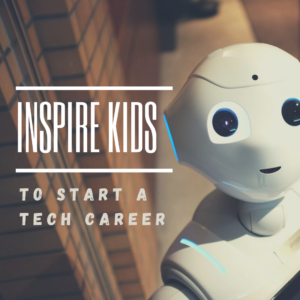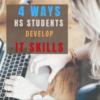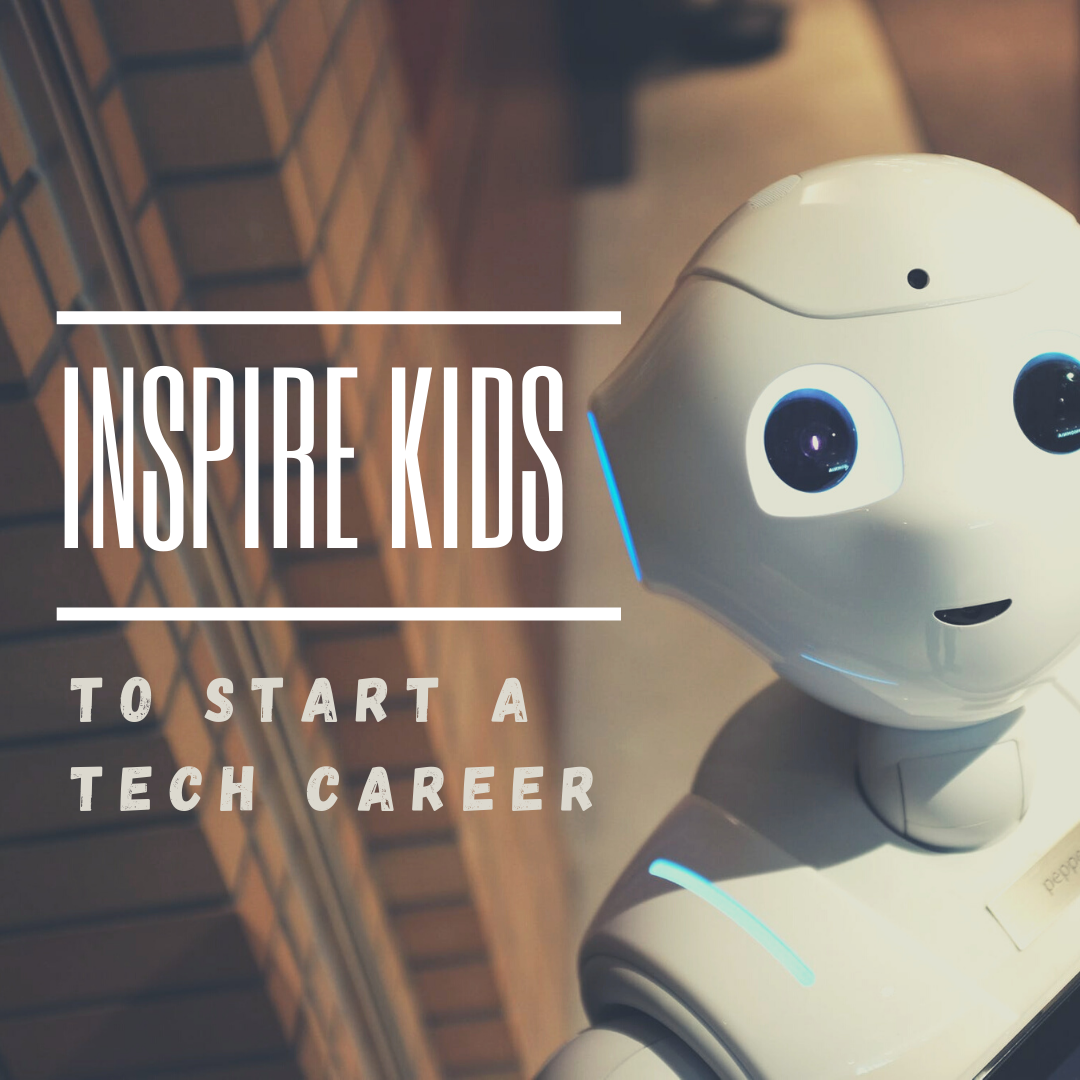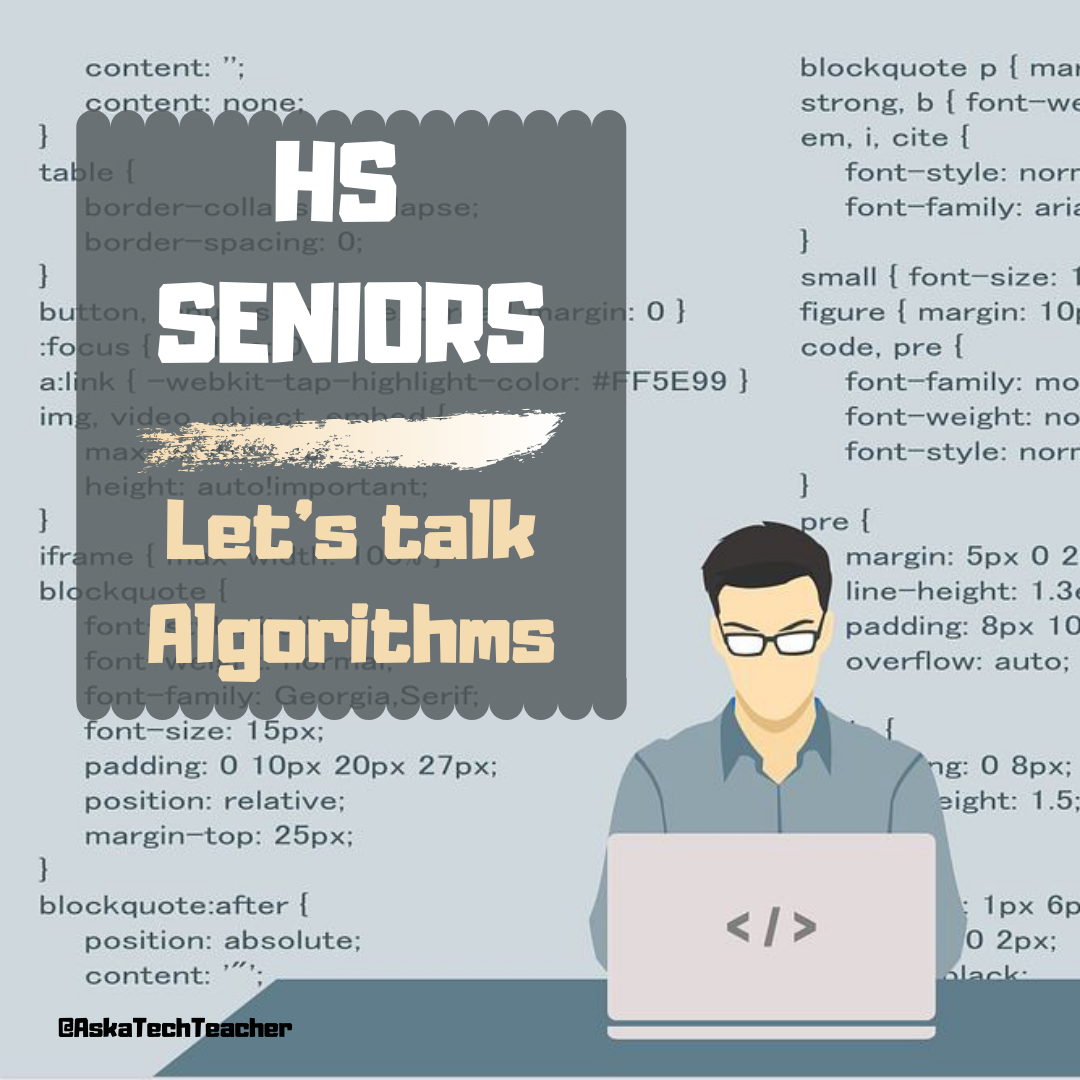Category: High School
What to Know Before Moving From High School Teacher to College Professor
A logical step for many teachers is to progress from teaching High School to College. But that is more complicated than it sounds. Here’s an good article from an Ask a Tech Teacher contributor on what you should know to make that a successful endeavor:
What to Know Before Moving From High School Teacher to College Professor
 Teaching is one of the most fulfilling, albeit challenging, jobs you can do. No matter the location or level, there will be immense feelings of pride, moments of anguish and many tired nights and weekends.
Teaching is one of the most fulfilling, albeit challenging, jobs you can do. No matter the location or level, there will be immense feelings of pride, moments of anguish and many tired nights and weekends.
For those who get started as a high school teacher, there comes a time when they think about moving on to teaching at the college level. If you have interest in becoming a college professor, the following questions will help you understand all the benefits, differences, challenges and steps to changing your career path.
High School or College: Which Has a Higher Earning Potential?
As most educators know, there is a salary bump at the college level. The median pay for post-secondary (college) teachers in 2020 was $80,790, according to the Bureau of Labor Statistics (BLS). This is well above the $62,870 median annual salary for high school teachers. In general, education isn’t the field you enter to get rich, but that extra income can be a major incentive to make the transition.
Are There Fewer Jobs Available for College Professors?
Though it may be surprising, there are actually more college professors in the United States than high school teachers. In 2020, there were 1.33 million post-secondary teachers compared to less than 1.05 million high school teachers, according to BLS. The field is also expanding faster in higher education, which BLS forecasts will add another 121,500 workers by 2029, compared to just 40,200 more in high school.
What Are the Requirements to Teach in College?
While the majority of tenure positions at four-year universities will require a doctoral degree — plus at least seven years teaching in the field for an institution — there are a range of opportunities available with a master’s degree as well. Community college teachers, for example, typically only ask for a master’s, and even well-known schools hire professors in some specialities, including the arts, without a Ph.D.
Share this:
4 Ways HS Students Develop the IT Skills for Higher Education
There’s still time this school year to help high school students learn the skills they’ll require to thrive in Higher Education. Here are basics you don’t want them to graduate without–from one of our Ask a Tech Teacher contributors:
4 Ways to Help High School Students Develop the IT Skills They’ll Need for Higher Education
Being able to use technology to its fullest is vital for students as they move from high school into higher education, yet it is not enough to assume that they will pick these skills up on their own.
Teachers can be proactive in their approach to fostering IT abilities in students, and here are just a few sensible strategies that will make this easier to achieve.
Leverage remote learning tools
Remote learning has become a reality for millions of people recently, and a study of higher education IT found that 70% of universities are planning to take a hybrid approach to teaching in the coming year. This means that students need to be familiar with the tools and techniques that are involved in this scenario, so that they do not fall behind their better-prepared peers.
That is not to say that teachers should simply pile in every remote learning tool and app available to them just for the sake of it; think about which tools and resources are actually appropriate for the subject in question, and use these in a way that makes a positive impact to the students’ experience. This will avoid making the process of remote learning overwhelming, while still giving them an understanding of what solutions will be part of their higher education ecosystem going forward.
Share this:
Inspire Kids to Pursue an IT Degree
This is such an important topic! Often kids–and parents–see tech as complicated, daunting, all-math-and-science. Kids think they’re not ‘smart’ enough and maybe, parents think that too! Here are great suggestions for encouraging young participation in a field that is probably the top choice for jobs:
4 Ways to Inspire Kids to Pursue a Degree In Information Technology
 In this tech-centric day and age, the demand for science, technology, math, and engineering skills has spiked significantly, and it only seems to increase. This is evident in how an increasing number of schools offer information technology degrees. There isn’t a single day that we don’t interact with technology. However, while the vast majority of people understand how to use technology, far too few want to understand how technology works.
In this tech-centric day and age, the demand for science, technology, math, and engineering skills has spiked significantly, and it only seems to increase. This is evident in how an increasing number of schools offer information technology degrees. There isn’t a single day that we don’t interact with technology. However, while the vast majority of people understand how to use technology, far too few want to understand how technology works.
It’s intimidating to delve into the finer details on the functionality of tech. Most people know how to use a social media platform, but show no interest in understanding the coding behind it. How then, can we spark such an interest in our children?
Start With Toys
Playtime eventually evolves into work time, and toys have a powerful influence on a child’s interests, thinking, behavior, and creative expression. Educational toy manufacturers such as Sphero, Kiwi Co., and Sparkfun create toys that help children learn about coding, circuitry, engineering, and many other STEM fields.
Celebrate With Tech
Introduce your child into the culture of science by holding their next birthday at a science center or a discovery museum. Sure, many schools organize field trips to these places, but if you want your child to gain a genuine interest in these things, you need to try to introduce it on a more personal level. It’s much easier to pique a child’s interest when an element of fun is introduced.
Share this:
How do I become a Web Designer?
As High School seniors prepare to graduate, many will choose something about computers for their job or continued studies. There’s no greater excitement than being part of the team that puts a face on the internet with web design. Here’s a great overview of that field from a school that prepares students for this future job:
How do I become a web designer?
 Many of our older students are now considering what careers they wish to pursue. Some will decide to work locally while some will either choose to study locally or abroad. With information technology playing an integral role in all our lives and with even the smallest of businesses having a website, we have seen an increasing trend in the number of students who wish to become web designers. Of course, this has become a complex field with lots of competition, even when qualified.
Many of our older students are now considering what careers they wish to pursue. Some will decide to work locally while some will either choose to study locally or abroad. With information technology playing an integral role in all our lives and with even the smallest of businesses having a website, we have seen an increasing trend in the number of students who wish to become web designers. Of course, this has become a complex field with lots of competition, even when qualified.
As a international school in Bangkok, we always encourage pupils to follow their dream careers and seek employment in something that they enjoy. As part of our role as educators, we must prepare students for what to expect in the world of work. In particular, our HS students often need guidance about how to begin their journey, and our careers team are always available to make suggestions and offer help as required. In this article, we will look at what is necessary to become a web designer upon leaving school.
What is the role of a web designer?
Web designers conduct work on various types of website, either for themselves, the company that they work for or for their own clients. It can cover a broad range of topics from relatively simple blogger sites to complicated e-commerce websites with multiple landing pages and sometimes hundreds of thousands of products. However, the role also involves other aspects, aside from the technical points, and this can often go overlooked.
A web designer will need to meet clients to establish what they require for their site. It will include gaining an insight into their business, their objectives and their client base. From here, it is the designer’s job to formulate a plan, showing the structure of the website, including choosing text, background and colour schemes. In some cases, the web designer may be asked for their advice regarding branding and the inclusion of multimedia.
After the site has been completed, the web designer will conduct thorough testing and once complete, upload the site to a server, from where it will be available to the public. Some clients may ask the web designer to work with them on an ongoing basis, managing the site, and uploading fresh content.
Share this:
HS Seniors: What do you know about Search Engine Algorithms?
As High School seniors prepare to graduate, many will choose something about computers for their job or continued studies. Here’s a great overview from an Ask a Tech Teacher contributor of what one of those fields–working with the powerful algorithms that drive search and research–is about:
What are search engine algorithms?
For many students who are approaching school leaving age, they will already have decided the career path which they wish to take. Not surprisingly, given the role it plays in our everyday lives, many choose to pursue a career in IT. Of course, this is an incredibly broad topic. Still, in this article, we will focus predominantly on aspects relating to websites, moreover, how they can help to achieve business goals and other objectives.
As an international school in Hong Kong, we do all we can to prepare our students for going out into the workplace. Our various IT classes cover a wide range of topics with web development, e-commerce and SEO all being covered to some degree. Indeed, it is three areas, which are all interlinked, where most students wish to work, understanding the professional opportunities that are likely to present themselves. However, for a website to fulfil its potential, it must satisfy the needs of search engine algorithms.
What is an algorithm?
Algorithms are not a new phenomenon and have been used as a part of mathematics for thousands of years. They are often mistaken for being a formula but are in actual fact a series of different formulas or ingredients. They are often likened to preparing a meal for a large group. However, the meals may essentially be the same; different people like it to be cooked differently. Some people might want their meat cooked rare while others like it well done, some like salt, some like pepper, and so on. The algorithm means that a different formula is required for each person.
Share this:
Why College Matters for a Successful Career in Tech
There is a lot of conversation about college vs. career–the pros and cons of each weighed against the needs of individual students. Here’s a thoughtful article from Peter MacCallister, an Ask a Tech Teacher contributor, on why college is a good idea even when considering a career in tech:
 Why College Matters for a Successful Career in Tech
Why College Matters for a Successful Career in Tech
Technology is one of the areas where self-education, or autodidacticism, can bring outstanding results and allow an individual to achieve professional success without holding official certifications to prove his knowledge and skills. Self-taught people study better without guidance and prefer to have full control over what, when and how they study. Why would such a person interested in a tech career spend thousands of dollars to go to college instead of learning at home? The reasons are plenty so let’s delve deeper into this issue.
A Prestigious College is a Playground for Networking
Getting into a highly-ranked college or university can give your career an incredible impetus if only for the fact that you’ll be surrounded by intelligent and accomplished people with similar interests. Colleges offer countless possibilities for networking both with professors who are experts in your field and with fellow students.
Imagine having attended classes with Elon Musk or Warren Buffet as a fellow student at an elite institution like the University of Pennsylvania. Good colleges and universities are filled with incredibly driven and passionate students from whom you can learn a lot and with whom you might collaborate professionally one day. Having many bright minds in one spot increases your chances of meeting future visionaries in your field.
Colleges Have an Extensive Network of Resources
At first glance, it seems that programmers, software developers and other tech professionals need little more than a computer with an Internet connection to develop their skills. However, no matter how motivated and passionate you are, there is a cap to self-education. A point comes when you need serious output from the external world to continue to grow at the same rate.
Libraries, laboratories, expensive software licenses, access to reputable academic journals and career assistance – all these represent only a part of the wide range of resources that a good university provides to students so they can excel in their field. Hunching over your computer for weeks and months to find a solution to a problem that your peers have solved long ago is counterintuitive. Meanwhile, having access to valuable resources allows you to keep in touch with the latest developments in the sector and make sure you stay on track.
Share this:
5 Ways Edtech Enhances Social Studies Lessons
Before I get into how edtech enhances social studies lessons, let’s ask a foundational question: What the heck is Social Studies? If you don’t teach in the United States, this might be a term you aren’t familiar with. According to Wikipedia:
“In the United States education system, social studies is the integrated study of multiple fields of social science and the humanities, including history, geography, and political science.”
Merriam Webster offers this definition:
“…the study of social relationships and the functioning of society, usually made up of courses in history, government, economics, civics, sociology, geography, and anthropology”
At primary levels, this includes history, science, and language arts. In MS and HS, it expands to cover science, mathematics, civics, economics, and maybe geography. According to Brookings, roughly nine percent of educators consider themselves social studies teachers. None arrived with a major in social studies though some did have a “Social Studies Teacher Education” degree. About 40 percent majored in history, political science, economics, or sociology with the rest in varied other degrees.
The goal of social studies is to promote civic competence — the knowledge required to be active and engaged participants in public life and the community. In the past decade, technology has become the disruptive tool of choice among teachers to make what traditionally is a droll collection of subjects energizing and inspiring.
Here are five ways edtech can kick up your social studies program:
Share this:
Hour of Code: How Students Can Build Their Own Apps
In my high school teacher forums, as part of the discussion on preparing kids for college and career, we talk a lot about the huge shortfall in applicants for a growing list of tech jobs. Despite robust pay, excellent work conditions, and the value they place on creativity, jobs sit open. How do we get kids excited about careers that traditionally sound boring and math-oriented? Websites like Code.org have a great approach to making coding accessible to all kids but still, too few students think they are smart enough to do these jobs.
Time to reveal a secret I learned over the years. When I let students play Minecraft, Scratch, or a handful of other top-notch games, they eagerly — even happily — complete the programming and coding parts without ever considering it “math” or “smart”. I’ve seen them spend hours building a virtual world exactly the way they want it without getting bored or distracted.
By High School, the choice between college and career is foremost with life-changing consequences based on what the student decides. Often the choice depends upon the student’s goals. This topic could fill volumes but today, I want to focus on the job of building apps. App Developer is listed as number three on ThinkAdvisor’s list of the best jobs of the future, with a projected growth of 57% through 2020 (according to the BLS). You can also check Andromo which is an excellent platform to build a no code application. There aren’t a lot of jobs where people can make money doing what they love.
Aside from future jobs, there are great reasons why even kids who want to become doctors or lawyers (or farmers) would benefit from learning the lesson of app building:
- Apps teach real-world skills like design, marketing, video production, project management, presentation skills, and special media use.
- The app building process requires creativity, innovation, critical thinking, and problem-solving — all fundamental to success in lots of jobs.
- Good app developers are collaborators, willing to work with others to ensure the app is accomplished on time and according to specs.
- Good app developers are decision makers, not afraid to be risk-takers in building something no one has done before.
As I dug into the background of “app building” to prepare this article, I found that it doesn’t just refer to the little buttons you click to see about today’s weather or add numbers or find your friends (well, find their phones). App developers are the first ones who try out the latest trendy devices. Wouldn’t you love to experiment with 5G on your smartphone or play with Samsung’s foldable phone? Or how about wearable devices like the embedded chips intended to replace employee cards? An app developer used all of these before they ever went on sale. App developers can work for software companies, retailers, in healthcare, in the travel industry, for the entertainment industry, or in financial services. CNN Money has called “app developer” the best job in America.
Once you’ve explained to students what it really means to be on the cutting edge of the high-tech world, let them try one (or more) of these six great app creation tools:
- App Inventor (from MIT)
- Code HS (an app building curriculum)
- Glide (how to create apps from spreadsheets)
- MAD-learn (a beginning to end app development program for K-12)
- Thunkable (a curriculum)
- TinyTap (geared for teachers but fine for the right student group)
Share this:
Tech Tools for PE Teachers
 Technology is a natural education fit in everything from math to Spanish to literacy. The one corner of K-12 learning that is not so obvious is PE — Physical Education. In that class, we think of physical stuff — not digital — like running and exercising.
Technology is a natural education fit in everything from math to Spanish to literacy. The one corner of K-12 learning that is not so obvious is PE — Physical Education. In that class, we think of physical stuff — not digital — like running and exercising.
But kids love technology’s apps and software. Is there a way to use these to encourage physical fitness? After all, the tie-in between physical conditioning and learning is well-accepted. Here’s what the NY Times reports:
Better fitness proved to be linked to significantly higher achievement scores — a 2013 study reported in PubMed.org.
But, how can teachers use the technology students love to encourage physical education? Here are my favorite websites and apps:
iOS, Android
Freemium
This is a stunningly visual app that takes students right into the human body via virtual reality. Viewers travel down the gastrointestinal tract, the small intestine, the circulatory system, and three other systems. With 360-degree navigation, it is fully interactive, including even tags for important parts. Students can stop and observe while exploring the hotspots. Watch this video—you really won’t believe it.
Share this:
Using Technology To Teach Kids About Troubleshooting Vehicle Problems
This is not a topic I’ve thought much about. I have a nice collection of driver’s ed websites and videos for high school students so really should have considered this essential skill. Thanks to Jane Sandwood, Ask a Tech Teacher contributor, for coming up with this article.
 U.S. adults consistently perform worse in digital problem solving compared to their counterparts in other nations, according to a report from the National Center for Education Statistics. This nature of affairs is possibly, in part, due to the limited emphasis on teaching problem-solving skills in school. Our lives are inextricably intertwined with cars, and at some point, our kids have to be introduced to concepts of operating and maintaining them. Not all children will grow up to become mechanics, but most of them will likely need to drive a car. Teaching them basic concepts about car maintenance will not only help satisfy their curiosity, but can also help them in the future when they are encountering problems with their cars. Tech tools have simplified the process of diagnosing car problems to the extent that children can be taught this essential aspect of car maintenance.
U.S. adults consistently perform worse in digital problem solving compared to their counterparts in other nations, according to a report from the National Center for Education Statistics. This nature of affairs is possibly, in part, due to the limited emphasis on teaching problem-solving skills in school. Our lives are inextricably intertwined with cars, and at some point, our kids have to be introduced to concepts of operating and maintaining them. Not all children will grow up to become mechanics, but most of them will likely need to drive a car. Teaching them basic concepts about car maintenance will not only help satisfy their curiosity, but can also help them in the future when they are encountering problems with their cars. Tech tools have simplified the process of diagnosing car problems to the extent that children can be taught this essential aspect of car maintenance.
Start With The Basics
Because car maintenance is not on the curricula for most schools, a car diagnostics project can best be handled as homework, after-school program, or as part of evening/weekend classes. The goal is to help them to improve their problem-solving skills. Before using technology tools to diagnose car problems, it is only fair to teach the child how the different parts of the car work. A demonstration of the location of the engine, battery, breaks, gearbox, and other essential car parts may be a good way to get things started. Then you can explain how the different car parts work together and throw in a lesson on basic car maintenance. This can include demonstrations on how to change car tires and how to replace car fluids like engine oil, radiator coolant, windscreen solutions, and brake fluid.
General Car Diagnostics
The child can now be introduced to the principles of identifying the cause of car problems. To help the child to remember the concepts, it might be useful to state generalized formulas for possible causes for common car problems. For example, you may explain that a car failing to start may indicate a problem with the battery, spark plugs, or the car fuel system. A burning rubber smell may signal a problem with the brakes, oil leak, or an electrical fault. Then, depending on the child’s age and cognitive abilities, you may delve deeper into the peculiar characteristics of each problem.












































